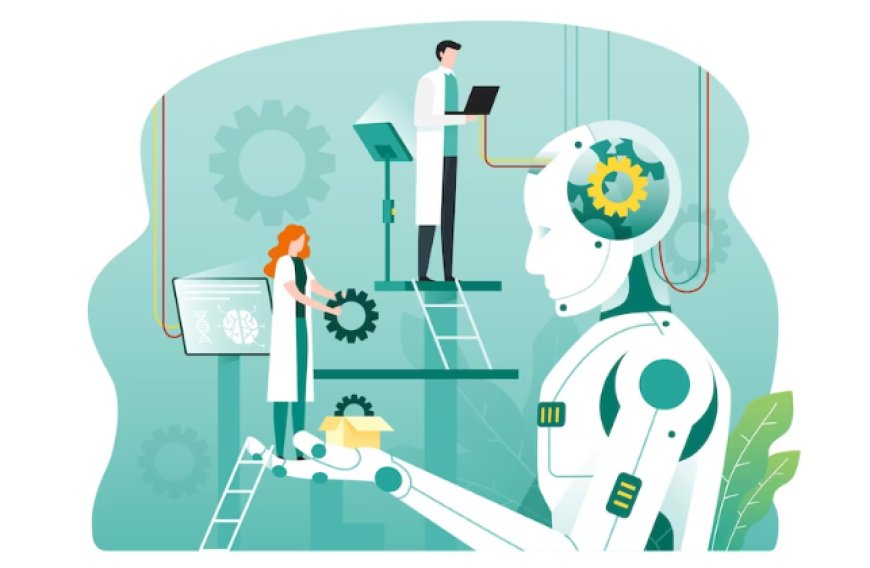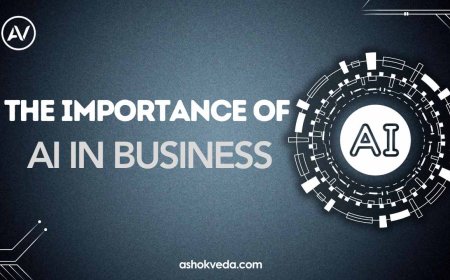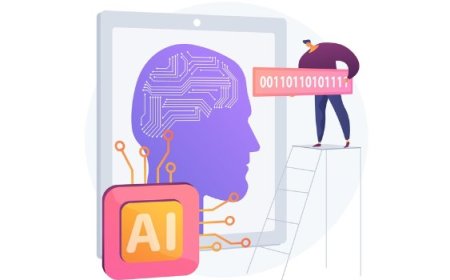Exploring the Ethics of AI: The Impact and Responsibility
This article discusses the importance of functions and modules in Python for code reusability, organization, and efficient coding

Artificial Intelligence (AI) is undoubtedly one of the most revolutionary technologies of our era. Its influence spans numerous industries, from healthcare to finance, and it holds the potential to completely transform our lifestyles and work environments. Nevertheless, as AI becomes more ingrained in our everyday lives, it brings forth a myriad of ethical concerns that cannot be ignored. These concerns encompass not only the societal implications of AI but also the obligations that accompany its creation, implementation, and utilization. Within this blog, we will explore the intricate ethical dilemmas surrounding AI, analyzing its effects on various sectors and the corresponding responsibilities that all stakeholders must uphold.
While AI offers countless benefits such as automation, efficiency, and enhanced decision-making, its integration into society is not without complications. Ethical dilemmas arise, from issues of data privacy and algorithmic bias to job displacement and the use of AI in critical decision-making processes. As AI's reach expands, these ethical dilemmas gain more prominence.
What are the ethical implications that arise from AI, and what measures can be taken to responsibly handle its impact in order to protect the well-being of individuals and society as a whole?
As AI becomes more integrated into our daily lives, it raises important ethical questions that require thoughtful analysis. The widespread use of AI brings concerns about data privacy and security, fairness in algorithms, the impact on employment, and the need for new skills, as well as ethical responsibility in decision-making.
1. Data Privacy and Security:
-
Regulations and Guidelines: Stricter regulations and ethical guidelines are necessary to safeguard sensitive data and ensure transparent data handling processes. Laws like the GDPR in Europe have set a precedent for data protection.
-
Secure Data Handling: Organizations must prioritize secure data handling practices, including encryption, access controls, and data anonymization. Users should be fully informed about how their data is being used.
AI ethics discussions frequently highlight the significance of data privacy concerns. Personal information misuse and data breaches emphasize the need for strict regulations and best practices in data security. With AI being used in various fields, including healthcare and finance, safeguarding data privacy is crucial. The healthcare industry, in particular, deals with highly sensitive patient data, making it an ethical and legal obligation to ensure its privacy and security in many jurisdictions.
2. Algorithmic Bias and Fairness:
-
Diverse and Inclusive Datasets: Training AI models on diverse and inclusive datasets is essential. This helps ensure that the system learns from a wide range of perspectives, reducing the risk of bias.
-
Bias Detection and Mitigation: Implement comprehensive bias detection and mitigation strategies. This involves regularly auditing AI systems for bias and taking corrective actions.
-
Transparency in Algorithm Decision-making: AI should provide clear explanations for its decisions, allowing users to understand why a particular choice was made. This transparency helps hold AI systems accountable.
Algorithmic bias is a complex issue that can lead to real-world consequences, from discriminatory hiring processes to biased criminal justice decisions. Recognizing and addressing algorithmic bias is not only an ethical imperative but also a legal one in many regions.
3. Job Displacement and Reskilling:
-
Reskilling Programs: Governments, businesses, and educational institutions should collaborate to establish reskilling programs. These programs help individuals acquire new skills and competencies that align with emerging job opportunities.
-
Promoting Educational Initiatives: Initiatives aimed at promoting lifelong learning and adaptability are crucial. Encouraging individuals to continually acquire new skills is essential in a rapidly changing job market.
-
Labor Market Adaptations: Policymakers should work on adapting labor markets to accommodate the changing nature of work. This may involve policies that support flexible work arrangements and income security.
The fear of job displacement due to automation and AI is not new, but it is becoming more urgent as technology evolves. Numerous reports and studies project that certain jobs may be automated in the coming years. However, reskilling and upskilling programs are critical in helping the workforce adapt to these changes.
4. Ethical Decision-making and Accountability:
-
Ethical Design Principles: AI should be designed and developed with ethical principles in mind, including fairness, accountability, transparency, and privacy.
-
Transparency and Explainability: AI systems should provide clear explanations for their decisions, ensuring users have a basic understanding of how the AI system arrives at its conclusions.
-
Oversight Mechanisms: Establish oversight mechanisms to monitor AI systems, ensuring that they adhere to ethical guidelines. These mechanisms may include audits, regulatory bodies, or industry standards.
Ensuring Transparency and Explainability in AI Algorithms:
-
Transparency and explainability are crucial for fostering trust and accountability in AI systems.
-
AI systems should provide clear insights into their decision-making processes to enable users to understand specific outcomes.
-
Initiatives like explainable AI (XAI) emphasize the need for AI models to offer understandable explanations for their outputs.
-
Incorporating transparency and explainability features into AI algorithms requires a concerted effort from developers to prioritize model interpretability.
-
This approach not only helps users comprehend AI-generated decisions but also facilitates the identification and mitigation of potential biases or errors within the system.
Promoting Ethical AI Education and Awareness:
-
Educating the public about the ethical implications of AI is crucial for fostering responsible AI usage.
-
Ethical AI education equips individuals with a deeper understanding of the ethical challenges associated with AI, enabling them to make informed decisions.
-
Educational initiatives, workshops, and training programs focused on AI ethics and responsible AI usage are increasingly prevalent.
-
Integrating AI ethics into educational curricula, professional training programs, and organizational policies contributes to the cultivation of an informed and ethical AI workforce.
-
Prioritizing ethical AI education fosters a culture of ethical awareness and accountability within organizations and communities.
Key Takeaway:
-
Ethical considerations play a fundamental role in AI development, ensuring that AI systems are accountable and produce fair and transparent results.
-
Transparency and explainability are crucial for building trust in AI, allowing users to understand the decision-making processes behind AI-generated outcomes.
The integration of AI into our modern world presents complex ethical considerations that require careful attention. To ensure that AI benefits society as a whole, it is crucial to prioritize ethical responsibilities and promote transparency and explainability in AI algorithms. By educating and raising awareness about ethical AI practices, and fostering collaboration among stakeholders, we can collectively address the challenges associated with AI. This approach promotes responsible innovation and prioritizes the well-being of humanity. As we navigate the impact and responsibility of AI, we must strive for a future where AI benefits all of humanity ethically and responsibly.
Developing and deploying AI ethically is vital for establishing trust and guaranteeing that AI positively impacts individuals and society as a whole. As AI progresses, it becomes imperative for all parties involved, such as businesses, policymakers, and researchers, to work together and give priority to ethical concerns. Through this collaboration, we can shape a future driven by AI that is not only technologically advanced but also upholds principles of ethics, fairness, and benefit for all.





































